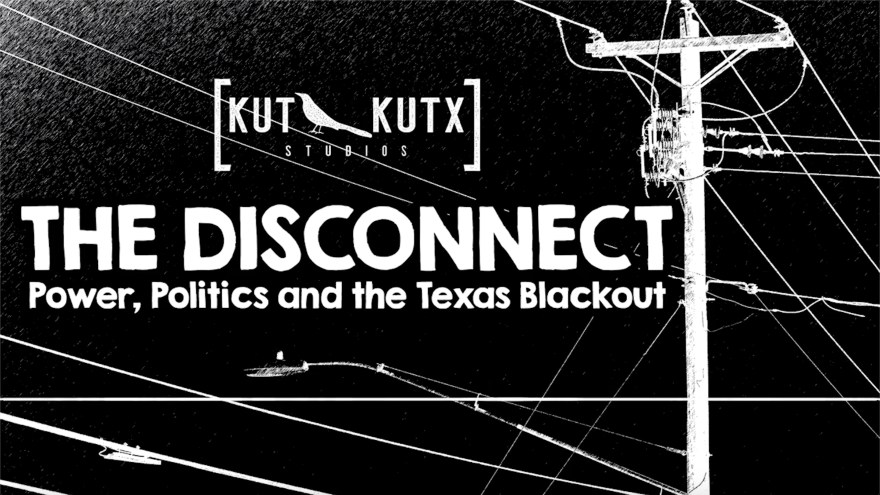The winter weather expected to arrive in Texas on Wednesday has a lot of people thinking about last February’s blackout.
This time around, energy experts and state officials are confident the freeze will not undo the state’s energy system. But it will be unusually cold, and may bring icy weather to large swaths of Texas. So how should we gauge the electric grid’s performance in what might be its first test since last winter?
First, remember that this is a much weaker cold front
The cold weather so far this year has been called “boringly normal.” The front expected this week might not be. Currently, forecasters say a round of freezing precipitation is possible from North Texas to Austin followed by a day or two of below-freezing temperatures.
But, even though this type of storm is not seen every year, it is still a far cry from the February freeze of 2021. Unlike that storm, it will not cover the entire state. That means energy demand is expected to be significantly lower and power plants outside the range of the freeze are less likely to be affected.
The cold will also not be as severe or last nearly as long.
In Austin, for example, meteorologists are currently anticipating around 30 hours of uninterrupted freezing temperatures later this week. Last year, Austin stayed below freezing for nearly a week straight.
In 2021, "we saw below freezing temperatures for many, many, many days. Temperatures in the single digits on the coldest nights, several rounds of wintry precipitation,” says Nick Hampshire with the National Weather Service. This event will be “nothing like that," he says.
The relative weakness of this front compared to last year's is one reason officials are confident Texas will not suffer another statewide blackout.
What to watch for
While a blackout appears unlikely, the performance of the grid this week could still teach us some things about how well energy companies and state regulators have or have not strengthened the grid since the last blackout. Here are some things to keep an eye out for as cold grips the state:
How will power plants perform?
Since last year’s blackout, state leaders have touted new regulations mandating that power plants “winterize” to be ready to perform in cold weather.
Dan Cohan, a professor of environmental engineering at Rice University, says this week may provide “the first real test” of those standards.
"How well do those coal and gas and nuclear power plants hold up after they've supposedly gone through checks of their winterization?" asks Cohan. “They've been audited and visited by ERCOT. Do they hold up better than they had last year?"
How much will natural gas supply drop?
The 2021 blackout brought a lot of attention to the crucial role the state’s natural gas supply plays in keeping the power running in Texas. The drop in gas supply was a main factor in last year’s blackouts because, without natural gas, gas power plants can’t produce power.
This year, energy experts have watched with concern as far milder cold snaps have again caused gas wells to stop producing and power plants to stop running. The performance of the state’s gas supply chain this week could tell us something about what work remains to be done to secure the gas supply.
Previous drops in gas supply during relatively mild cold fronts do not "bode well for the performance of the natural gas system in colder weather or for the performance of power plants that can't get gas because of freeze," said Alison Silverstein, an energy consultant who has formerly worked at both the Public Utility Commission of Texas and the Federal Energy Regulatory Commission.
While power plants have been "winterized," no such standards have yet been enacted by state oil and gas regulators at the Railroad Commission of Texas.
The gas market "still appears to be the Wild West," Silverstein told KUT last month.
Power demand
Forecasts are constantly changing, but the state’s grid operator — the Electric Reliability Council of Texas, or ERCOT — has said Texans could use over 70 gigawatts of power from the state grid at the peak of this week’s storm.
The only time energy demand has been higher than that in the winter was during last February’s storm.
But ERCOT’s forecasting has been off before. And while this week’s cold may not reach the single digit temperatures seen last February, some researchers have questioned the grid operator’s methodology when forecasting demand, especially in extremely cold conditions.
You can always check in on how energy demand on the Texas grid is stacking up against what ERCOT predicted by going to this website where it displays current and forecasted grid conditions.
Local outages
If your power happens to go out, this week, or any other, it’s worth remembering that the cause is most likely local.
"All you have to do is have a little bit of ice and a tree fall over and hit a line and the streets are going to go dark for a little bit," observes the Texas Tribune’s Ross Ramsey.
Ramsey says that fact alone calls into question the wisdom of Gov. Greg Abbott promising Texans “the lights will stay on.”
It’s also a good reason to be prepared for an outage, even if you’re not worried about another statewide blackout. If you do lose power, it’s also good idea to check with your local power company to see if it can give you the cause and a time when power might be restored.
Stay safe!
There are plenty of ways other than a blackout that freezing weather can cause problems. As the cold front arrives, pay attention to road conditions, listen to local safety updates and remember spring will be here next month.













